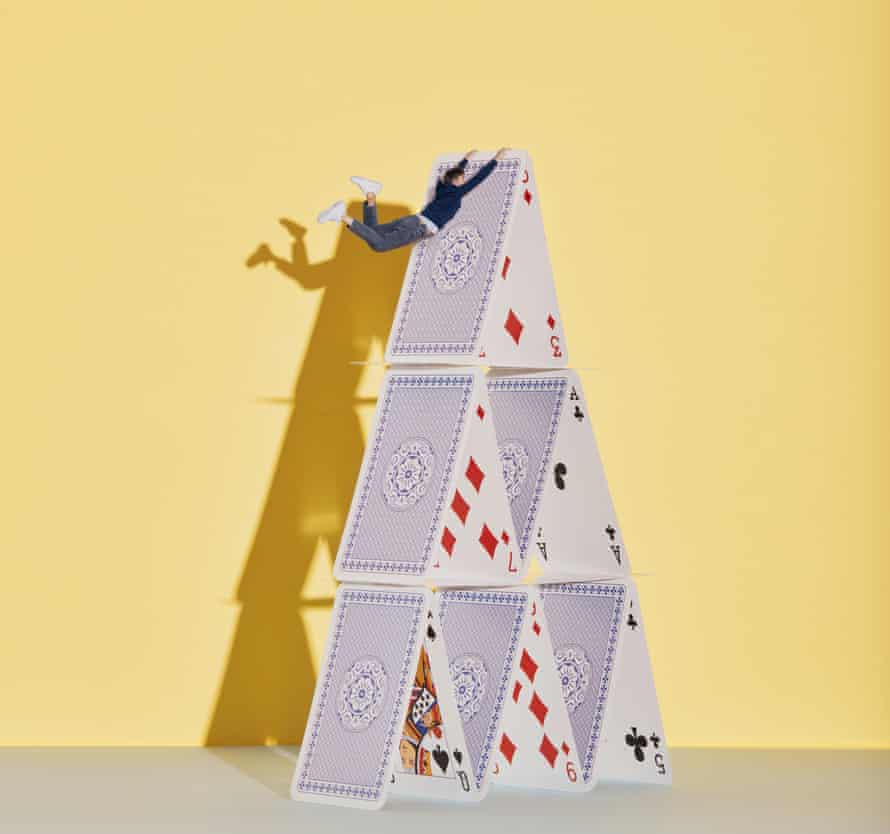Each year, British punters lose more than £11bn to the gambling industry, equivalent to nearly £164 for every man, woman and child in the UK. This money-spinning national love affair with betting owes much to the liberalisation of gambling laws under Tony Blair’s Labour government in 2005. The growth of the UK betting sector since then has created billionaires, such as Bet365’s Denise Coates and Betfred’s Done brothers. At the other end of the scale, what starts out as a harmless flutter has driven countless customers into financial ruin, family breakups, and worse.
The betting industry promotes its wares predominantly through advertising on TV, social media or via wall-to-wall sponsorship of football clubs. But gambling has always been different from other consumer products. Coca-Cola advertises in the knowledge that you probably already know how it tastes. The occasional memory jog will remind you why you like it, and might lead you to buy more and to choose Coke over Pepsi when you do. Convincing a customer to choose your brand – and remain loyal – is only half the battle with gambling. Betting firms also need to persuade punters that they have a decent shot at winning some money, even though – in the long term at least – they don’t.
The gambling industry could not exist unless the bookmaker or casino had a better grasp of the odds than the punter. That’s the foundation upon which the industry is built, and it’s a bargain that – unless they are completely delusional – the gambler enters into knowingly. They bet believing they might just be the one who can beat the bookie, if not by judgment then by luck.
For six years, I’ve been reporting on the human damage caused by the gambling industry. I’ve heard the desperation in the voice of someone who has lost hundreds of thousands of pounds in a matter of weeks, and I’ve sat with the parents of young people who had their whole lives ahead of them, until a gambling addiction drove them to suicide.
Sign up to our Inside Saturday newsletter for an exclusive behind-the-scenes look at the making of the magazine’s biggest features, as well as a curated list of our weekly highlights
Those affected know the trauma all too well. What is less well widely understood is how gambling companies are able to influence otherwise happy, intelligent and sociable people, causing them to act irrationally, against their own interests. The techniques gambling products use to tap into our psyches are both artful and terrible, marrying simplicity of concept with ingenuity of execution to nudge us towards dark choices.
The starting point is understanding cognitive bias. Humans are irrational – we misjudge reality based on our flawed perception of it. Our love of football or support of a team convinces us that our gut feeling about a game is more reliable than it is, while our optimism tells us that, even thought the chances of winning a slot machine jackpot are stacked against us, fate may have chosen to upset the odds this time.
Kim Lund, founder of poker game firm Aftermath Interactive, has made a career out of game design and has seen at first-hand how cold, hard probability defeats the illogical human mind every time – and allows the gambling companies to cash in. “All gambling games are based on psychological triggers that mean they work,” he tells me. “The human brain is incapable of dealing with randomness. We’re obsessed with finding patterns in things because that prevents us from going insane. We want to make sense of things.”

Unlike many forms of gambling, poker requires a high degree of skill; if your opponent is a bad player, they are unlikely to get the better of you with luck, at least not over time. Dr Philip Newall, a former poker player turned academic psychologist, has been studying dynamics like these for much of his professional life. At the poker table, he enjoyed a degree of success because he played just one type of game – fixed-limit hold ’em – where all bets and raises are fixed at a certain amount. Newall stuck to what he knew and, for the most part, only played against people he could be fairly sure, from telltale signs such as their patterns of play, weren’t professionals. That background, coupled with his in-depth study of psychology, makes him well placed to explain what the industry knows – and exploits – about how our minds work.
Newall used to walk down Walworth Road in London, a high street replete with bookmakers’ shops. He would pass William Hill, Betfred and Ladbrokes, and notice they were all offering similar types of bet that went something like this: “Manchester United to win 3–1 v Burnley and Marcus Rashford to score first.” This very common type of bet is known in the trade as a scorecast. It requires a combination of events to occur at once, in this case the exact score, the winning team and the first goal scorer. As soon as you start combining probabilities of multiple events, the odds lengthen very quickly. This means that a scorecast outcome is pretty unlikely, so the bookmaker can offer what looks like a bargain 15–1, knowing the chances of it happening may be more like 50–1.
To the average person in the street, the idea of Marcus Rashford scoring the first goal to help Manchester United to a 3–1 win over Burnley sounds like a pretty plausible scenario. When a gambler thinks about that scorecast bet, they are picturing in their mind’s eye an in-form striker opening the scoring in a routine victory over an inferior team. A standard Saturday afternoon.
But bookmakers are sitting on a mine of information on their historical return from scorecasts, and will have a good idea of the difference between the odds they’re offering and the real odds. They don’t publicise this for obvious reasons. That, in Newall’s words, would be “killing their own action”, giving a disproportionate amount of information to the person on the other side of the bet. In poker, the saying is: “Don’t teach the fish” – fish being bad players you can easily take money from. Instead of teaching the fish, gambling companies try to ensure, through the types of bet they promote most heavily, that as many people opt to gamble their money on more complex probability scenarios, rather than sticking to simpler outcomes.
José Perales is an associate professor in the Mind, Brain and Behaviour Research Centre at the University of Granada in Spain. He has studied the same phenomena as Newall and explains that this is the result of something called the “representativeness heuristic”. He said: “A heuristic is a rule of thumb, something you can use that works pretty well in your daily life, but can convince you to make quite serious mistakes, especially when they’re deliberately exploited, which is the case here.”
The football match scenario in question is something gamblers can easily envisage happening and that they may even have seen before. It could happen. But the necessary confluence of multiple events means it is actually far less likely than it instinctively feels. There are many other possible outcomes that are just as likely.
Gambling companies are getting better and better at targeting this sort of weakness in our mental defences. Newall tracked TV adverts over two World Cups in 2014 and 2018, drawing on data collected by the Guardian data journalist Pamela Duncan. He found that standard home win, draw, away win bets (on the winner of the match) simply disappeared from one tournament to the next. These straightforward, easier-to-understand wagers featured in nearly 8% of adverts at the 2014 tournament, but had dwindled to nothing at the next. By contrast, high odds, complex bets shot up from 4% to nearly 35%. The result? A very lucrative World Cup for the gambling companies. As the odds lengthen, the gambler’s ability to calculate them weakens.
This is an example of how the betting industry benefits from “informational asymmetry”. Online casino operators know everything about you – particularly when they can track your online patterns of play and analyse the data in minute detail. The majority of punters, by contrast, know very little about the company on the other end of the bet.
Philip Newall coined the phrase “dark nudges” to describe techniques used by the betting firms. The phrase is a nod to the 2008 book Nudge, by economists Richard Thaler and Cass Sunstein. A favourite of former UK prime minister David Cameron, the book draws on psychology and behavioural economics to examine how people in positions of authority can “nudge” others into making decisions that benefit them and society. The idea is that you can drive positive changes without needing to be openly coercive, which might make people resistant. Of course, you can nudge people towards poor choices, too.
How gambling firms keeps you hooked
1. Making you think you’re in control
Nobody will stake money on Liverpool losing 15–0 to Port Vale, because they know this is close to impossible. But in games that are entirely random, players exert no control at all over the success of their bet. Indeed, assuming that the game isn’t rigged, nobody has total authority over the outcome. Gamblers often behave as if they do not understand this. Sociologists have observed dice players throwing softly when they want a low number and hard when they want a high one, for instance. In her 1975 paper The Illusion of Control, Ellen J Langer conducted a series of experiments that showed that our expectations of success in a game of chance vary, depending on factors that do not actually affect the outcome. One of the variables that makes a big difference to how gamblers behave is the introduction of an element of choice. In one of Langer’s experiments, subjects were given lottery tickets with an American football player on them. Some subjects got to choose which player they wanted, others were allocated a ticket at random. On the morning of the draw, everyone was asked how much they would be prepared to sell their ticket for. Those who had chosen their ticket demanded an average of $8.67, while those who had been allocated one at random were prepared to give it up for $1.96.
Even though the choice of a ticket had no influence on which one would be the winner, those who had made a conscious decision were significantly less willing to abandon it.
Dr Steve Sharman, research fellow in the School of Psychology at the University of East London, is a specialist in gambling psychology. He explains what’s going on: “If you go into a casino and you’re playing roulette, they show the previous outcomes. They might show so-called ‘hot numbers’ or ‘cold numbers’. A hot number is one that has come up a lot recently, while a cold one hasn’t been seen for a while. By displaying them, the casino is inviting you to entertain the idea that previous spins of the roulette wheel have an effect on future spins.” This, explains Sharman, reinforces something called the gambler’s fallacy, or the failure to appreciate the “statistical independence of turns”. “If I’ve had 10 heads in a row, it doesn’t make it more likely that tails will come up next,” he says. “But gamblers don’t think like that.” Indeed, people in general don’t tend to think like that.
I came across hot numbers while reporting on fixed-odds betting terminals too. Above the machines, staff would plaster a notice advertising which numbers had been coming up a lot lately on the machines’ digital roulette games. This, says Sharman, “reinforces the sense that you are basing your decision on something other than complete chance”. At that point, you’re labouring under an illusion that you have some kind of agency.
José Perales points out that there are different kinds of illusion of control. One type is related to the notion that some person or force other than ourselves is pulling the strings, and that our behaviour might be able to affect that force. That’s something we can recognise in those who believe in the power of prayer, or simple superstition – don’t walk under that ladder or you’ll have bad luck. The other kind is a belief in our own abilities. That’s something at play in those complex football bets – the feeling that you know quite a lot about football so your instinct that Rashford will nab the first goal in a 3–1 win is a decent shout.
The illusion of control is a psychological phenomenon that can be particularly effective among the cohort of people most likely to be problem gamblers: young men. Perales contends that young, educated men are particularly susceptible to the mostly illusory notion that they are using their intelligence to get ahead. “Their general reasoning abilities are pretty good. But that doesn’t protect them from developing cognitive biases related to how gambling works. You can feed their sense of confidence and self-worth by designing the product in such a way that you increase the sense of control or the sense that you are learning something.”
This could work by displaying hot numbers or nudging betters towards complex markets where they believe they are well informed. It also works with something incredibly simple, like the mechanism of an online slots game. In some games you click on “spin” and the reels whiz round and stop of their own accord. In others, you can stop them at a moment of your choosing.
“It’s very difficult to avoid the feeling that the physical process determines the outcome. But it’s just a random-number generator,” says Perales. In other words, whether you stop the spin or you let the computer do it, it doesn’t make a difference. But it somehow feels as if it does.
2. Disguising your losses as wins
Make a simple bet on Tiger Roll to win the Grand National and you lose your stake if the thoroughbred throws his rider at the first fence. There’s no hiding the fact that you’ve lost. That isn’t always the case, though. One of the most common devices that gambling firms use to placate punters and keep them coming back for more are losses disguised as wins.
On a slot machine, you might deposit some money on Egyptology-themed game Eye of Horus, set your bet to £1 and spin. Most of the time you lose the stake. A small percentage of the time you spin and get more than £1 back. But one of the other outcomes is that you lose a portion of your stake, say 50p. At that point, an animated box flashes up saying: “Winner paid 50p.” “Objectively, you’ve still lost,” says Sharman. But the slot machine frames it as a win.
Gambling companies have an incentive to ensure you don’t twig that you’re steadily haemorrhaging cash, and that informs the way games are designed. Typically, a machine might flash up with the same music and lights for a win as it does for a loss disguised as a win.
“The only feedback you might get is the lights and sounds,” says Sharman. “So, if there’s no difference between the feedback from a win and a disguised loss, that’s a clever way of tricking the neurological circuitry.”
In 2020, the Gambling Commission set up a working group to look into ways of making slots and other products safer. One of the results of the process was that the misleading happy music, as well as visual effects that may disguise a loss as a win, were abolished.
3. Celebrating near misses
The reels on the slot machine spin. The first strip lands on cherries, and the second lands on cherries too. The third briefly touches on cherries … and then slides on – perhaps in slow motion – to the lemon, or the gold bars. Behind this common image lies a strange phenomenon.
“Near misses are very interesting,” Steve Sharman says. “They’re consistently rated as being more unpleasant. People feel worse when they have a near miss than when there’s a massive miss. At the same time, they make people want to continue gambling more.”
Sharman and his fellow researchers decided to test how gamblers react to two different types of slot machine near miss: the ones where the reel spins one place too far, beyond the “payline” (the horizontal axis along which the crucial symbols appear); and the one where it doesn’t spin far enough. Interestingly, they found that when the reel doesn’t reach the payline, the gambler is more likely to keep playing, having apparently been on the brink of the jackpot. But if the reel moves one place too far, it seems to dissuade people from continuing, almost as if the chance of a win briefly materialised and must now have gone for good. Yet neither outcome actually has any bearing on the result of the next spin.
Modern online slot machine games, with multiple lines of play, are more complex than the old-school one-armed bandits. They move much faster too, in order to increase the rate at which they take your money. This makes it harder to spot near misses during regular play. But most slots have bonus features, an occasional moment where the opportunity to win a bigger prize comes up and the gambler pays closer attention, including to near misses. This is when today’s slot machine gambler might be more likely to experience the emotional reaction to the perception that they almost won big.
4. Giving you free money
The feeling that you’re getting a good deal is another motivating factor that makes you more likely to bet. But it’s worth it for the house if it brings you back for a second bet at riskier odds.
One of the products that has emerged in recent years is “boosted odds”, where the bookmaker gives you much longer odds than you would usually get, say 15–1 that a good team such as Chelsea will beat a weaker side like Fulham. Sometimes this will be on offer to new customers only, as a means of driving new account sign-ups.
The same phenomenon is at play with the “free” bets and bonus spins that companies hand out. “It’s called the house money effect,” explains Philip Newall. “People are much more risk-seeking with money they’ve won than with money they’ve paid in.”
If the house gives you a free spin, you’ve got nothing to lose. Except that such free bets and bonuses usually come with strings attached. You get them, for the most part, only on the condition that you’ll “roll over” the bet into a second or third one. Sometimes the bet has to be rolled over many more times before it can be withdrawn. The house money effect makes that whole process feel like a free ride. Of course, all the while you are becoming habituated to gambling, and you’re more likely to return with your own money and to go on longer rides, this time at your own expense. “The more you bet, the more you’ll get free bets, and the more likely that you give it straight back,” says recovering addict Phil Worrall, from Nottingham. “You might think you’ve got no money left, but if you get an email saying you’ll get a £50 free bet if you bet £50 of your own money, you find a way to scrape it together. It’s a little hook back in.”
There is a question mark over the extent to which gambling firms are deploying these techniques with precision. Some of these phenomena are so woven into the fabric of certain products that they aren’t so much being weaponised as a fundamental feature of gambling. If you’re at a casino and you put all your chips on 25, spin the roulette wheel and it lands on 26, the only person you can blame for that near miss is Lady Luck, whatever the detrimental effects on you may be. It’s a near miss, but not a manufactured one. It is self-evidently an intrinsic part of the game you’ve chosen.
It would, of course, be different if a digital game were designed in such a way as to make this happen more than is statistically likely.
I have spoken to many problem gamblers who are convinced this is the case – that the machines are rigged to push your buttons as much as you push theirs, to maximise near misses and capitalise on psychological weaknesses. I have never seen any evidence for this and such information would surely be closely guarded by any company unscrupulous enough to deploy it.

The same goes for the “early win”. This is something that crops up again and again in my conversations with gambling addicts, and it is backed up by statistics. A 2019 report from the National Gambling Treatment Service, an umbrella term for several organisations offering help to addicts, found that 62% of those receiving treatment had experienced a big win at the start of their gambling career. It makes sense that hitting the jackpot soon after you start gambling – or even early within a session – creates a memory of that sweet feeling that might drive you to gamble more and more, hoping to recapture the same taste. It’s reminiscent of the horror stories parents tell their kids about drug dealers giving out free samples to get people hooked.
In the course of my journalism, I occasionally experiment with various gambling products so that I can get a better idea of what I’m talking about. On my very first go with online slots, I had a couple of big wins. (Steady on, we’re only talking a tenner here.) I don’t know what would have happened if I’d carried on gambling, but the return to player on that game was 96.09% – spend £100, on average you get £96.09 back – so it’s a certainty that I’d have lost my winnings eventually.
When it comes to online casino games and slots, Kim Lund feels that something less cunning is going on: that firms are simply watching what makes money and repeating it in a robotic process of trial and error. “My main gripe with the industry is that it has, to a large degree, been run by people who don’t love it, who treat gamblers as dumb sheep. They see gambling like petrol: ‘We have a commodity – how do we sell it? What else can we sell them while they’re at the gas station?’”
The result is an evolutionary mechanism that rewards the development of addictive content while absolving anyone from the responsibility for its impact.
Breaking this cycle can be done. In the course of writing about the gambling industry, I hear inspiring stories of people like Chris Murphy, who used to gamble online secretly at night as his girlfriend slept beside him, but now works for the Sporting Chance clinic, run by former England footballer Tony Adams, helping athletes with addiction issues. Or James Grimes, who lost everything betting on football and now works via his group The Big Step to disentangle gambling from the game he loves.
But tales of recovery like these require superhuman effort – and a good deal of support from friends, family and treatment services. All too often these safety nets are lacking and there is nothing to fall back on; no recourse but another spin of the wheel.
This is an edited extract from Jackpot by Rob Davies (Guardian Faber, £14.99). To support The Guardian and Observer, order your copy at guardianbookshop.com. Delivery charges may apply.
In the UK, anyone concerned about their gambling, or that of a loved one, can visit BeGambleAware.org for free, confidential advice and support. The National Gambling Helpline is available on 0808 8020 133 and operates 24 hours a day, seven days a week.
In the UK and Ireland, Samaritans can be contacted on 116 123 or email jo@samaritans.org or jo@samaritans.ie. The charity Mind is available on 0300 123 3393. In the US, Mental Health America is available on 800-273-8255, and the National Suicide Prevention Lifeline is at 800-273-8255. Other international helplines can be found at www.befrienders.org
You’ll Also Like :
Why Come Poker is Failing
The Real Poker Crack










More Stories
Macau Higher Roller On-line Slot from iSoftBet
2022 WSOP Hands of the Week: Stout Folds Straight Flush, a Royal on 2nd Hand of Main Event
MSG Sphere to Open up with U2 – Casino.org